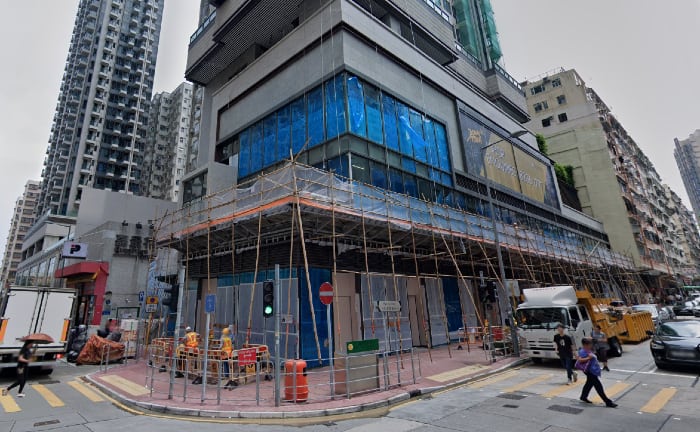
Sun Hung Kai sold the retail podium of its Downtown 38 complex at a 25% discount
Hong Kong’s battered investment sector is showing signs of life as a recent series of transactions, headlined by Swire Properties’ sale of a Taikoo office tower to Gaw Capital Partners and Schroders Pamfleet, hint at growing investor confidence.
With good news coming from stock markets and vaccine makers, and city leaders driving for a goal of zero COVID-19 infections in the Asian financial hub, Hong Kong has seen a flurry of commercial property trades this month after deal flow dropped by 62 percent in the first nine months of this year compared to the same period in 2019.
“It’s not a sudden spike,” Hannah Jeong, head of valuation and advisory services at Colliers International, said of the recent activity. “It’s more like an accumulation of pent-up demand, similar to the residential market.”
Jeong and other analysts attributed the upswing in trades to a growing willingness among asset owners to sell properties at discounts, with rumours that the government is on the verge of waiving a tax applied to non-residential property sales also luring buyers back into the market.
Commercial Waiting Game
In the city’s largest trade of a stabilised property this year, Gaw Capital Partners and Schroders Pamfleet one week ago agreed to purchase the CityPlaza One office tower from Swire Properties for HK$9.84 billion ($1.27 billion), a price which some analysts are taking as an indication that prices are falling in the world’s most expensive real estate market.

Hannah Jeong of Colliers International
With that asset changing hands at the equivalent of HK$15,609 per square foot, Swire is selling off the 21-storey building for about 18 percent less than the price it had achieved when it sold CityPlaza Three and CityPlaza Four to Gaw Capital and China’s Hengli Investments Holding in late 2018.
While Swire’s sale has been widely reported, the market has also witnessed a burst of smaller transactions, most of which came after asset owners agreed to steep discounts.
Among the highlights was Sun Hung Kai Properties’ recent sale of the retail podium in its Downtown 38 residential complex in Ma Tau Kok. The 21,000 square foot (1,951 square metre) mall went for HK$300 million, or HK$14,300 per square foot, a 25 percent hit on the HK$400 million asking price, according to a report in the Hong Kong Economic Times, citing Land Registry records.
In Central, investor David Chan continued to sell off his holdings in The Center by disposing of two units spanning 4,000 square feet for roughly HK$126 million, or HK$32,000 per square foot, according to local property agency Midland IC&I. The tycoon commonly known as the King of Cassettes let go of the rooms in the Queen’s Road tower at a 30 percent discount to his earlier asking price, according to local media reports.
Elsewhere, a local cartoonist purchased the 17th floor of The Sharp in Causeway Bay for HK$32.8 million or a discount of more than 30 percent from the HK$47.4 million that the seller had paid to acquire the 1,580 square foot space in the Ginza-style shopping arcade in 2013.
Among the deals reported in recent weeks, price reductions have been a dominant theme.
“There isn’t going to be a quick recovery, not in the next six to 12 months, so vendors are starting to accept reality,” Jeong said, noting that Swire, as an example, is in a different position now than when it sold CityPlaza Three and CityPlaza Four two years ago.
In 2018, Swire had no cash flow issues and just wanted to dispose of non-core assets, she said. “Now they’re under massive pressure due to Cathay Pacific, and they need cash.”
Hope and Price Cuts Stir Recovery
CBRE reported that Hong Kong’s third-quarter commercial investment volume plunged 37.2 percent from the previous period to HK$4.5 billion — the lowest quarterly total since 2009, when the city was still recovering from the global financial crisis.
Deal volume in Hong Kong during the first nine months of 2020 totalled $5.3 billion, falling 62 percent year-on-year in one of the region’s weaker showings, according to a report released last week by Real Capital Analytics.
“I think the liquidity was always there, but people are looking for better deals,” Colliers’ Jeong said. “As long as sellers are willing to cut prices, there will be buyers.”
In a note issued last week, analysts with Midland IC&I attributed the upswing in transactions this month to a number of factors, including better control of the COVID-19 pandemic in the city and a strong performance by the Hong Kong stock exchange.
The agency also noted local reports that the government might withdraw some cooling measures set out in recent years to curb speculation, including rumours that the authorities may be considering a repeal of the double-stamp duty on commercial and industrial transactions.
The government tariff, which taxes trades of non-residential properties at up to 8.5 percent, had been put in place in 2013 in an effort to rein in trading of commercial and industrial assets around the city.
Jeong, however, doubts there will be stamp duty relief any time soon. “I don’t think [a stamp duty waiver] will actually happen,” she said, although she did indicate that the government could make other moves to prop up the retail sector, where trading has fallen more steeply than in the office market.
Leave a Reply